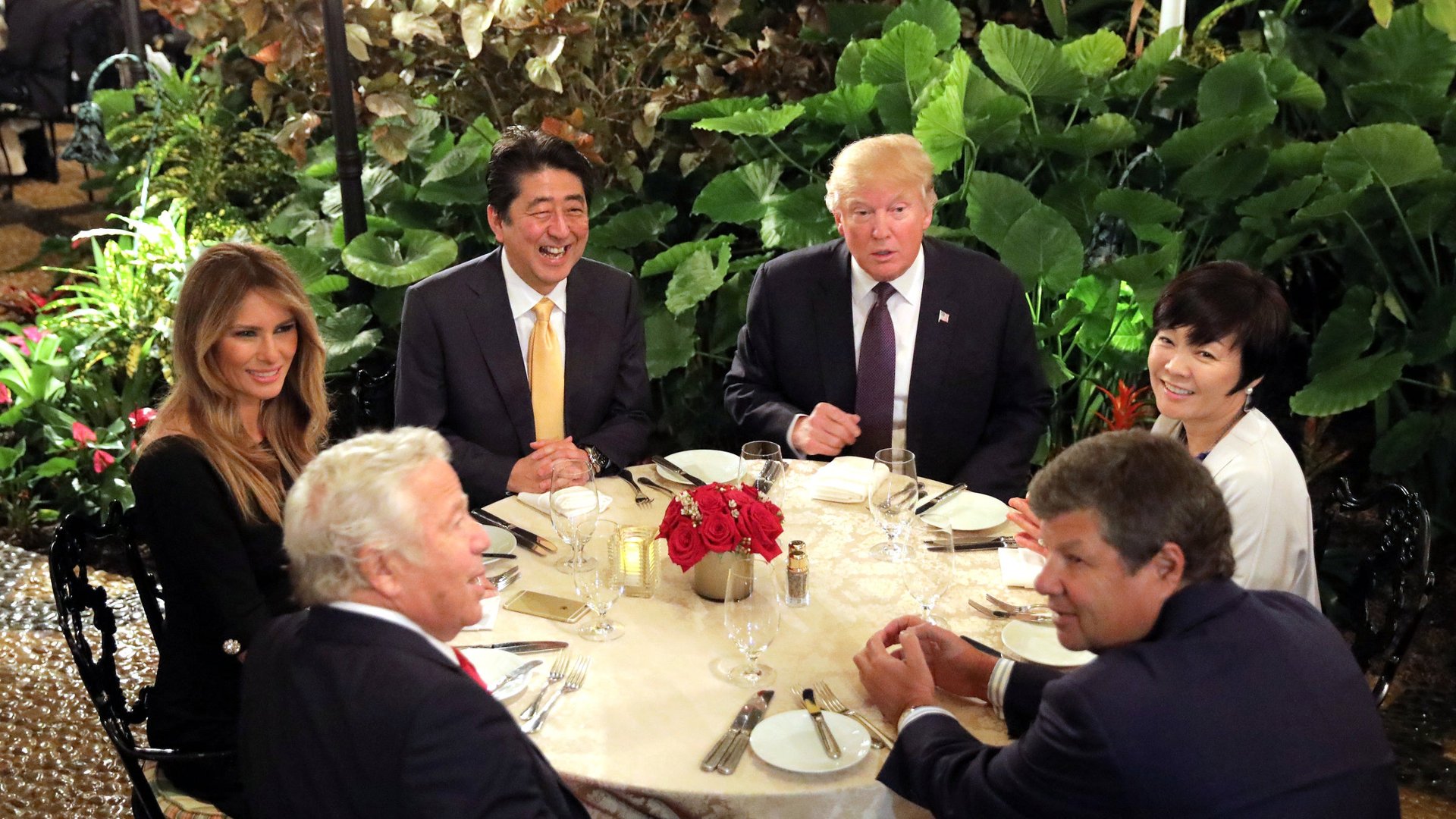Donald Trump requested 64 foreign guest workers for his “winter White House”
When US president Donald Trump and Japanese Prime Minister Shinzo Abe gathered to condemn a North Korean missile test, they did it just fifty yards from a wedding reception at Trump’s Palm Beach resort Mar-a-Lago, with celebratory music underscoring the threat of nuclear warfare.


When US president Donald Trump and Japanese Prime Minister Shinzo Abe gathered to condemn a North Korean missile test, they did it just fifty yards from a wedding reception at Trump’s Palm Beach resort Mar-a-Lago, with celebratory music underscoring the threat of nuclear warfare.
That fees from that wedding, along with any other profits earned at the club, continue to line Trump’s pockets through a trust that lawyers say doesn’t eliminate conflicts of interest, since Trump has access to information about the profits and losses at his companies and can take control of the assets at any time. One way Trump is maximizing profits? He got permission from the US Department of Labor to hire 64 foreign guest workers to wait on his guests, cook their food and clean their rooms during the winter high season in Florida.
Trump had applied to bring in these workers while promising during his presidential campaign to kick undocumented immigrants out of the United States and block imports. At the time, he defended the guest worker practice by saying it was common among US companies, who will bring in 119,000 temporary workers in 2016 and 2017, many to work seasonal jobs. Temporary foreign workers come into the country under the H-2B visa program.
The Palm Beach Post reports that the latest documents released by the labor department—which will now be put in the position of approving future requests by the US president to hire guest workers—show that Trump cut wages for some of these employees. Cooks saw a 19-cent drop in wages per hour, while maids and servers saw a 10-cent bump. Overtime rates rose.
According to the kind of economic calculations endorsed by Trump and his campaign team, those 64 jobs were essentially stolen from Americans. But Trump’s family companies frequently use guest workers and his appointee to run the Department of Labor, Andy Puzder, has defended them in the past. Many economists argue that bringing these workers to the US is one of the most powerful forms of foreign aid, since their earning power here outstrips that in their native countries.
Beyond the contradictions in his economic policy on foreign workers, Trump’s apparent decision to use Mar-a-Lago as his weekend get-away while serving as president—besides costing taxpayers millions in additional travel and security fees—raises information security concerns. Aides scrambling to prep the US president for his remarks on North Korea’s missile test Feb. 11 apparently briefed him at his table in the middle of the club’s restaurant, using their mobile phones to illuminate briefing papers arrayed before him. Aside from the potential for hacking, unlike at the White House, the staff working in the club aren’t subject to background checks; indeed, the H-2B process is notoriously abused.
When president Trump is freelancing on foreign policy at his private restaurant, do we really know who else is listening?